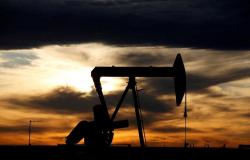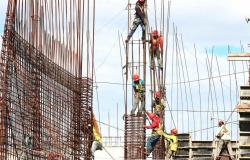It was first of all Hugo Micheron who, in Liberationreminds us of the pedigree of Abu Mohammed al-Golani [ou al-Joulani selon les translittérations] who reverted to his civil name of Ahmed Hussein al-Chara at the same time as he took Damascus and whose head is still put at a price of 10 million dollars by the United States: “He entered the jihad in Iraq in 2003. He then spent a lot of time in American prisons, notably Abu Ghraib, where he spent time with the future headquarters of Daesh. Then leader of the Islamic State of Iraq, Abu Bakr al-Baghdadi sent him to Syria in 2011 with the mission letter to ‘jihadize’ the rebellion.
In MarianneDavid Khalfa, co-director of the North Africa and Middle East Observatory at the Jean-Jaurès Foundation, explains: “The Israelis are wary of HTS like the plague and do not believe in the change of al-Joulani, whom they accuse of leading a communications operation aimed at the West. For Israelis, he remains a fundamentalist, a radical Islamist, who understood very well the reality of regional and international power relations. (…) The Israelis will therefore be watching HTS and al-Joulani’s strategy like milk on the fire, particularly with regard to Hamas. After October 7, he welcomed the massacres and said he was inspired by the methods of the terrorist organization. With a pedigree like that, no trust can be placed in him”.
The Orient-The Day reminds us that, if HTS is the main rebel force present in Syria, the actors there are very numerous, starting with the Druze militias “who seized the provinces of Deraa, Qoneïtra and Soueïda, before heading towards Damascus”. On Syrian soil, we also find the Turkish army which “occupies since 2016, with the pro-Turkish forces of the Syrian National Army, a coalition of Sunni Islamist groups, a large strip of discontinuous land along the Turkish border, sheltering 1.5 million people” with one goal: “see the Syrian Kurdish forces, perceived as a branch of the Turkish PKK, eventually retreat beyond the east bank of the Euphrates”. In the North-East of the country, where there are also 900 American soldiers, it is the Arab-Kurdish coalition of the Syrian Democratic Forces which dominates after having fought the regime as much as ISIS or the Turks. And l’OIL reminds that “If the territorial continuum of IS was defeated in 2019, pockets of the jihadist group remain in certain desert regions of central and eastern Syria”.
For its part, the Israeli army, “present over a large part of the Golan, in southwest Syria, since the 1967 Arab-Israeli war” took control of the entire region and its Defense Minister, Israel Katz, warned the IDF to “prepare to stay for many months on Mount Hermon” and to create in the demilitarized zone of the Golan established in 1974 after the Yom Kippur War a zone free of all “highly strategic weaponry and terrorist infrastructure”remind Haaretz et The Jewish Chronicle.
Last but not leastexplain l’OIL: “In the Alawite region, on the coastal strip of western Syria, Russia has its two main military bases in Syria” on a total of 21 military bases and 93 observation posts (see the map of the forces present produced by the OLJ).
The analyst of Haaretz Zvi Bar’el insists: “The irony doesn’t stop there. Iran and Russia, which effectively controlled large areas of Syria, are now replaced by two new-old occupiers: Israel and Turkey. One has taken possession of the ‘Syrian Hermon’ and, a little further, the other is completing the occupation of the Kurdish regions of northern Syria.. He explains: the Arab world is preparing to support al-Shara, “assuming that any leader would be better than Assad. This, by the way, is what Syrians also believed about Assad Sr. when he overthrew the regime of General Salah Jedid, only to end up with another large-scale massacre.”
Always in Haaretzwe sense this distrust, even from a source from the Islamist opposition: “We cannot expect them to [le mouvement HTS] get the job done, then lay down their weapons and slip away at such an early stage”.
It’s still l’OIL which tells us that the Prime Minister responsible for the transition in Syria, Mohammad al-Bashir, recognized “the erroneous behavior of certain Islamist groups” before adding that “it is precisely because we are Islamic that we will guarantee the rights of all people and all faiths in Syria”.
The same al-Bashir, to whom the Italian journalist from Corriere della Serra Andrea Nicastro requests: “Did I understand correctly when I said that you are ready to make peace with Israel and that you are hostile to Iran, Hezbollah and Russia?”. Al-Bashir does not respond, thanks the journalist and leaves the room.
In the last episode of Haaretz Podcastthe editor-in-chief of New Lines MagazineSyrian of origin, Hassan Hassan explains: “I suspect that they will probably send signals to Israel, directly or indirectly, that they do not want to provoke an escalation there.”. And in the same episode, journalist Amos Harel, who says he does not believe in the so-called moderate speech of the new Syrian leaders, adds: “The question is whether fighting Israel is a top priority for this new alliance; I don’t think so. But is this the beginning of a wonderful era between Israel and Syria? I seriously doubt it”.
In the French edition of Times of Israelwe read: “The first reason for the success of the rebel offensive and the collapse of the regime forces is the effectiveness of the military operations carried out by Israel against the Lebanese Shiite terrorist group Hezbollah and Iran since October 8, 2023”. What columnist Dan Perry also notes in The Forwardwhile wondering: “Israel accidentally helped spark regime change in Syria – what now?”. He warns: “Israel now finds itself at a critical turning point. Its successes against Iran’s regional proxies have reshaped the regional balance, but they should not be hailed as unquestionable success: they are victories that have created serious new risks. To reap lasting benefits from this moment of upheaval, Israel must act decisively to stabilize Gaza, address the Palestinian question and forge a new regional order alongside Sunni Arab states..
We find the same worried observation under the pen of Jean-Philippe Rémy, correspondent of Monde in Jerusalem: “The weakened regime of Bashar Al-Assad presented advantages for Israel, allowing the Jewish state to intervene for air strikes against the interests, people or military installations of Hezbollah, Iran or their allies within the Shiite militias, with almost complete freedom of action. This weak but useful enemy now gives way to a plunge into the unknown.”






